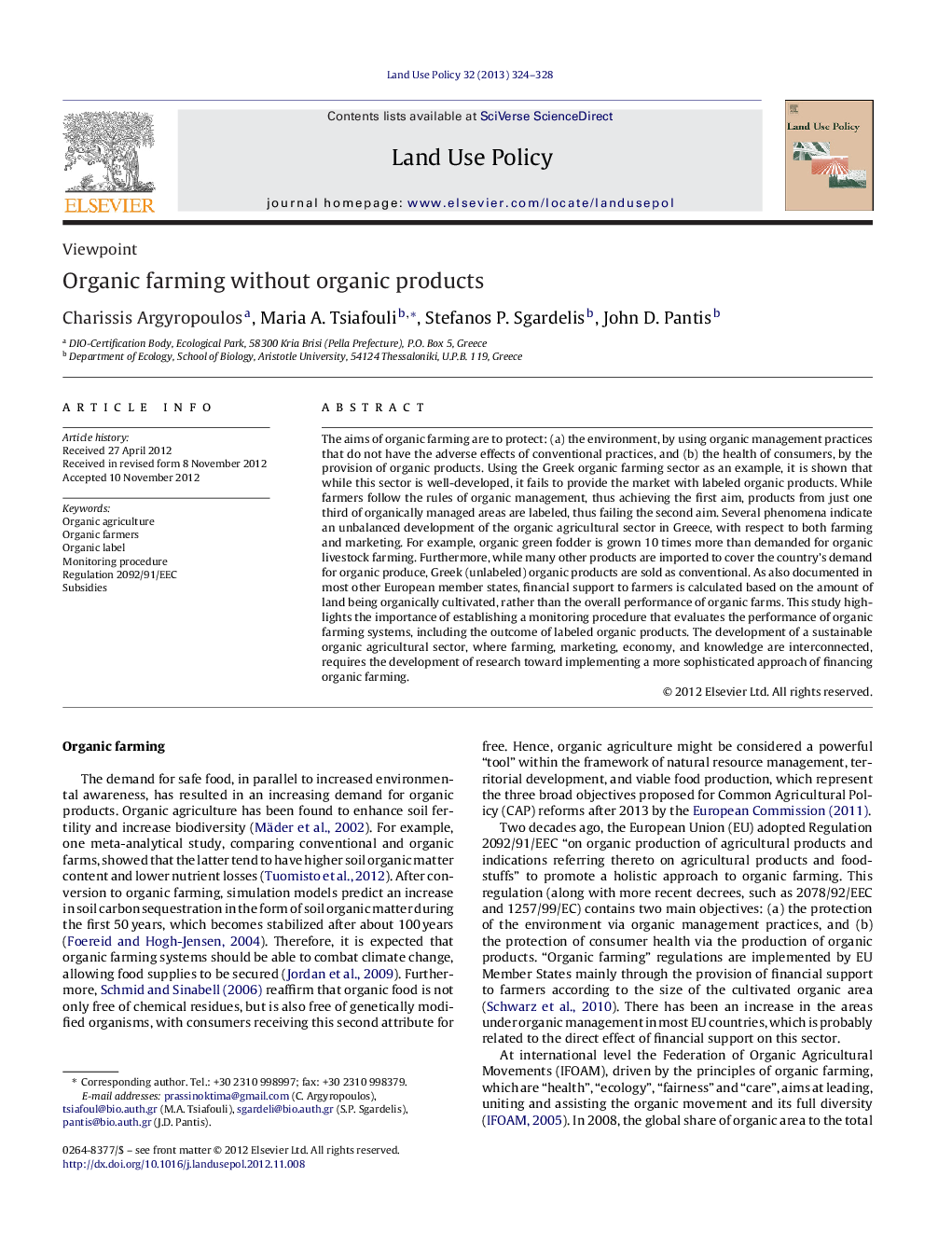| کد مقاله | کد نشریه | سال انتشار | مقاله انگلیسی | نسخه تمام متن |
|---|---|---|---|---|
| 93269 | 160118 | 2013 | 5 صفحه PDF | دانلود رایگان |
The aims of organic farming are to protect: (a) the environment, by using organic management practices that do not have the adverse effects of conventional practices, and (b) the health of consumers, by the provision of organic products. Using the Greek organic farming sector as an example, it is shown that while this sector is well-developed, it fails to provide the market with labeled organic products. While farmers follow the rules of organic management, thus achieving the first aim, products from just one third of organically managed areas are labeled, thus failing the second aim. Several phenomena indicate an unbalanced development of the organic agricultural sector in Greece, with respect to both farming and marketing. For example, organic green fodder is grown 10 times more than demanded for organic livestock farming. Furthermore, while many other products are imported to cover the country's demand for organic produce, Greek (unlabeled) organic products are sold as conventional. As also documented in most other European member states, financial support to farmers is calculated based on the amount of land being organically cultivated, rather than the overall performance of organic farms. This study highlights the importance of establishing a monitoring procedure that evaluates the performance of organic farming systems, including the outcome of labeled organic products. The development of a sustainable organic agricultural sector, where farming, marketing, economy, and knowledge are interconnected, requires the development of research toward implementing a more sophisticated approach of financing organic farming.
Figure optionsDownload as PowerPoint slideHighlights
► Organic agriculture has a dual role: protecting the environment and consumer health.
► Increased organic areas do not guarantee an increase in labeled organic products.
► In Greece, just 1/3 of certified organic areas provide labeled organic products.
► Policy and monitoring should be integrated to realize the aim of financial incentives.
Journal: Land Use Policy - Volume 32, May 2013, Pages 324–328
